
Property taxes increase when a property changes ownership. The taxable value of most properties is less than what they could be sold for. This is because the price most properties could sell for grows faster than 2 percent per year. Because of this, when a property changes ownership its taxable value often resets to a higher amount. This leads to a higher property tax bill for that property. This means people who move usually end up paying higher property taxes for their new home than they paid for their old home.
But there are special rules for some homeowners or Proposition 13 (1978). Those who are over 55 or severely disabled or whose property has been impacted by a natural disaster or contamination. We refer to these people as “eligible homeowners.” An eligible homeowner can move within the same county and keep paying the same amount of property taxes if their new home is not more expensive than their existing home. Also, certain counties allow these rules to apply when an eligible homeowner moves to their county from another county. Homeowners who are over 55 or severely disabled generally can use these special rules only once in their lifetime. This limit does apply to properties impacted by a natural disaster or contamination.
Special rules also allow properties to pass between parents and children without an increase in the property tax bill. These rules also apply to grandparents and grandchildren if the grandchildren’s parents are deceased. We call properties passed between parents and children or grandparents and grandchildren “inherited property.” The rules apply to a parent’s or grandparent’s home and a limited amount of other types of property.
As of April 1, 2021, Proposition 19, or The Home Protection for Seniors, Severely Disabled, Families, and Victims of Wildfire or Natural Disasters Act have been expanded:
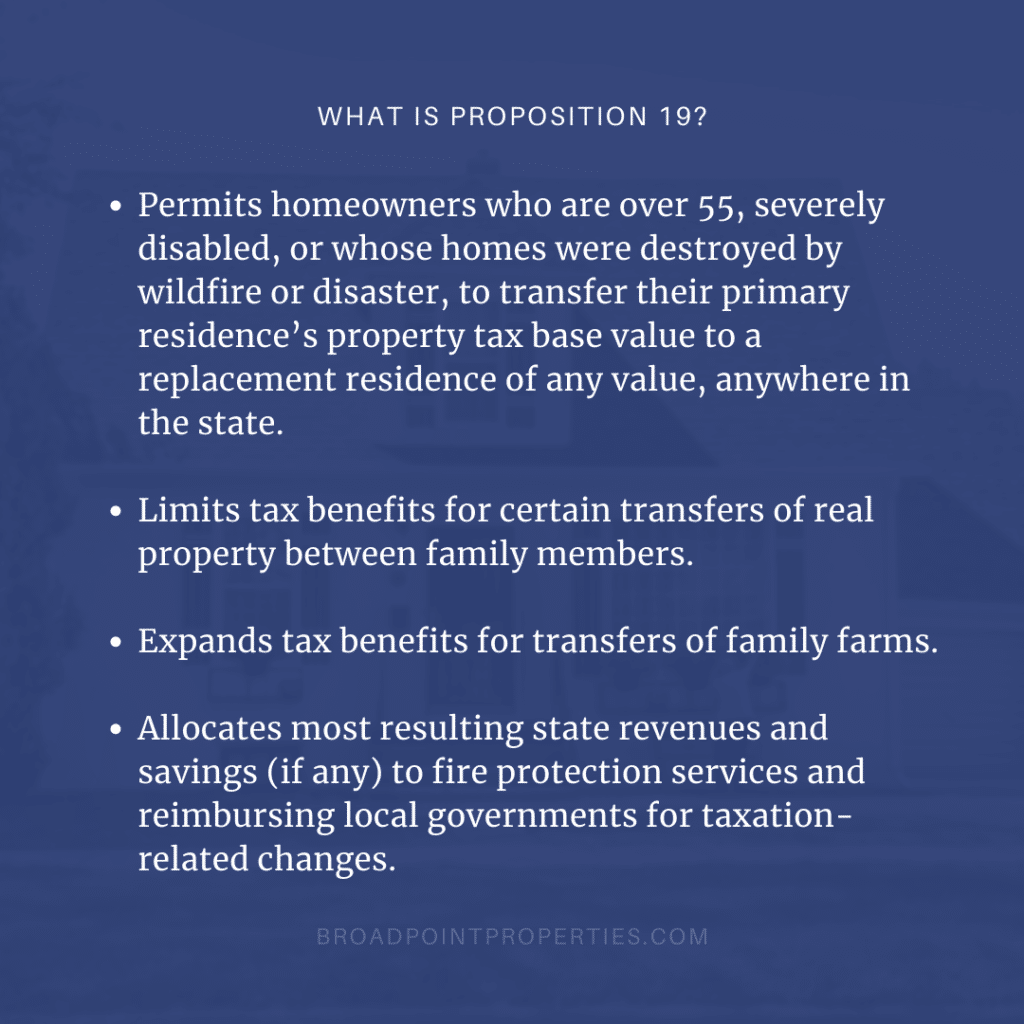
- Allows Moves Anywhere in the State. Eligible homeowners could keep their lower property tax bill when moving to another home anywhere in the state.
- Allows the Purchase of a More Expensive Home. Eligible homeowners could use the special rules to move to a more expensive home. Their property tax bill would still go up but not by as much as it would be for other homebuyers.
- Increases Number of Times a Homeowner Can Use the Special Rules. Homeowners who are over 55 or severely disabled could use the special rules three times in their lifetime.
This act narrows the special rules for inherited properties.
- Ends Special Rules for Properties Not Used as a Home or for Farming. The special rules would apply only to two kinds of inherited property. First, the rules would apply to properties used as a primary home by the child or grandchild. Second, the rules would apply to farms. Properties used for other purposes could no longer use the special rules.
- Requires Tax Bill to Go Up for High Value Inherited Homes and Farms. The property tax bill for an inherited home or farm would go up if the price the property could be sold for exceeds the property’s taxable value by more than $1 million (adjusted for inflation every two years). In this case, the tax bill would go up but not as much as it would if the property were sold to someone else.
Below are changes between the old law to the new Proposition 19:
Changes to Base Year Value Transfer-Persons at Least Age 55/Disabled
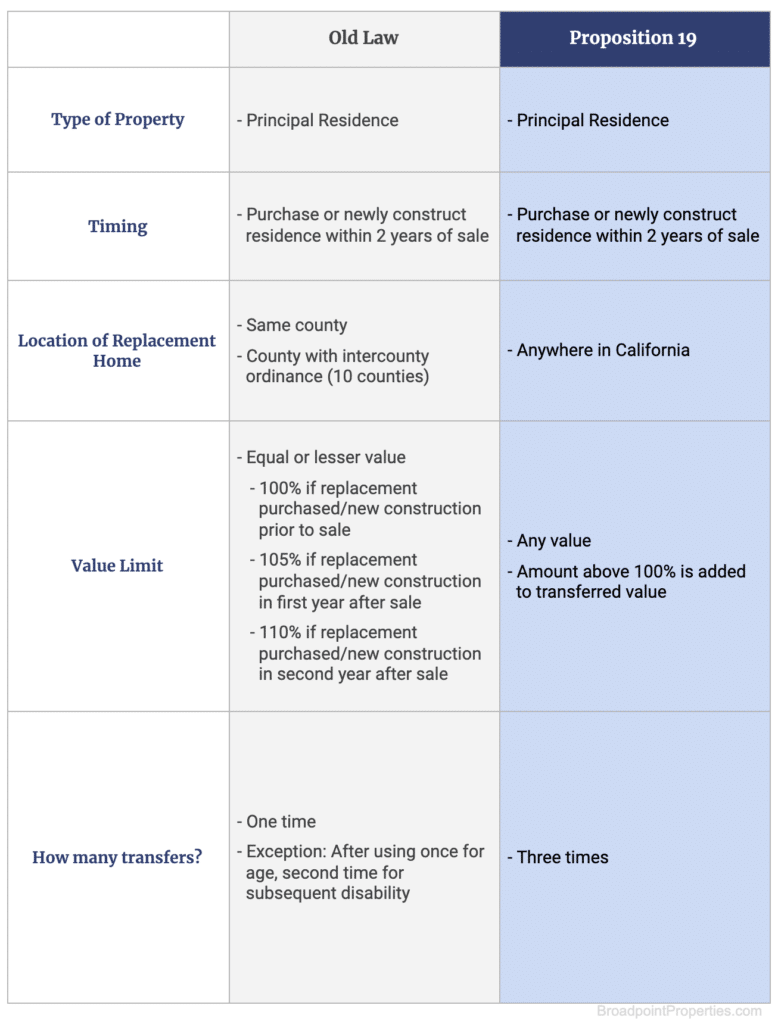
Changes to Parent-and-Child and Grandparent-to-Grandchild Transfer Exclusions
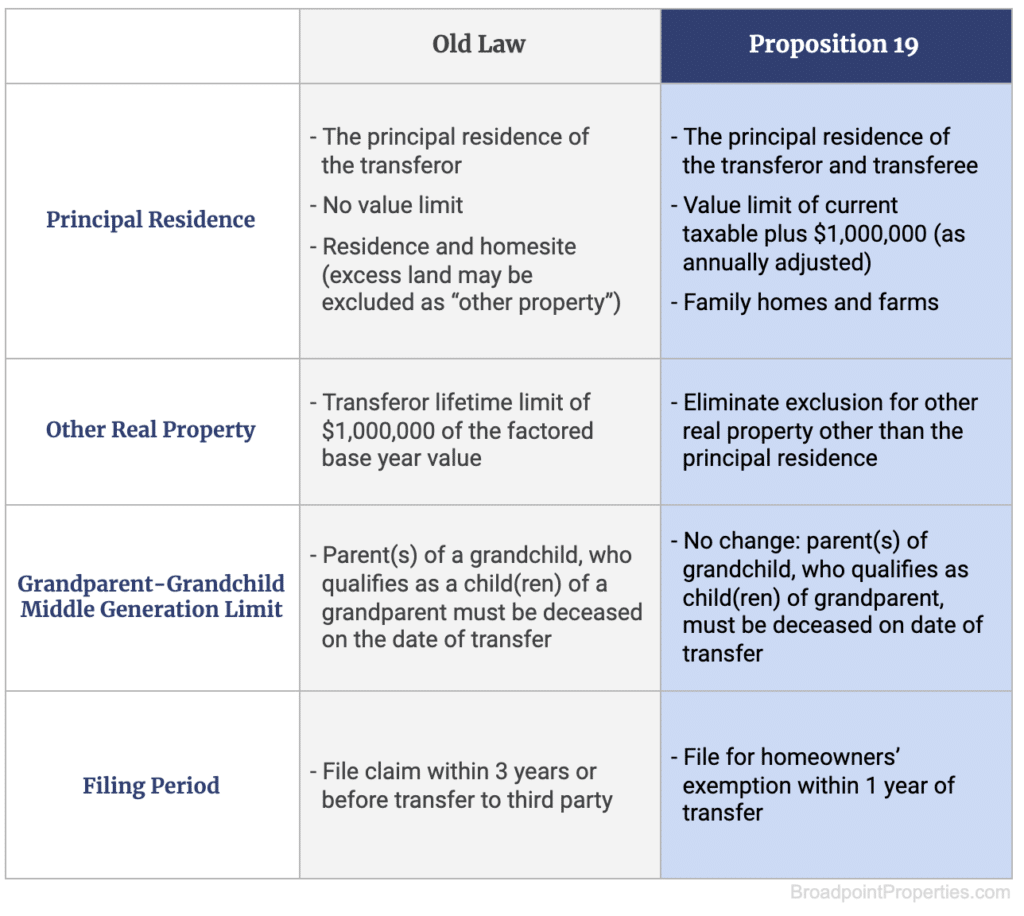
Changes to Base Year Value Transfer – Intracounty Disaster Relief
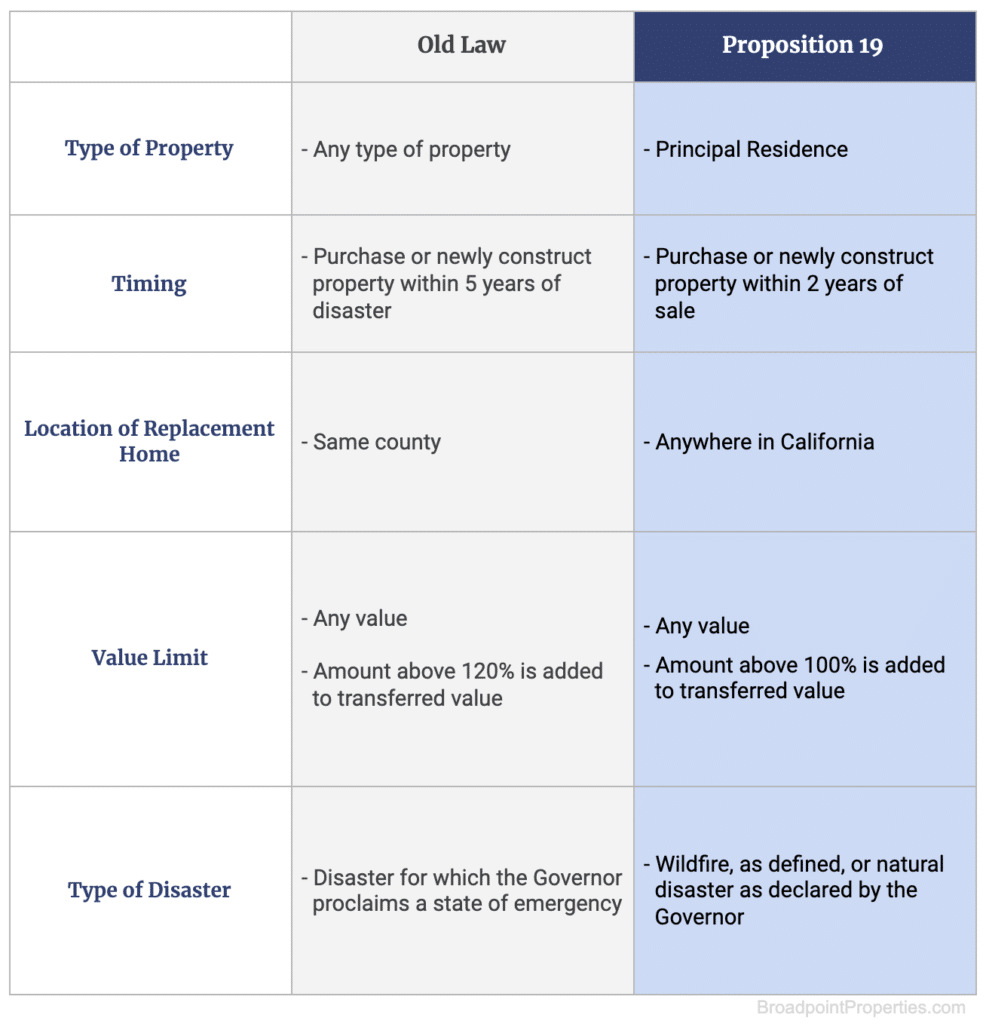
Changes to Base Year Value Transfer – Intercounty Disaster Relief
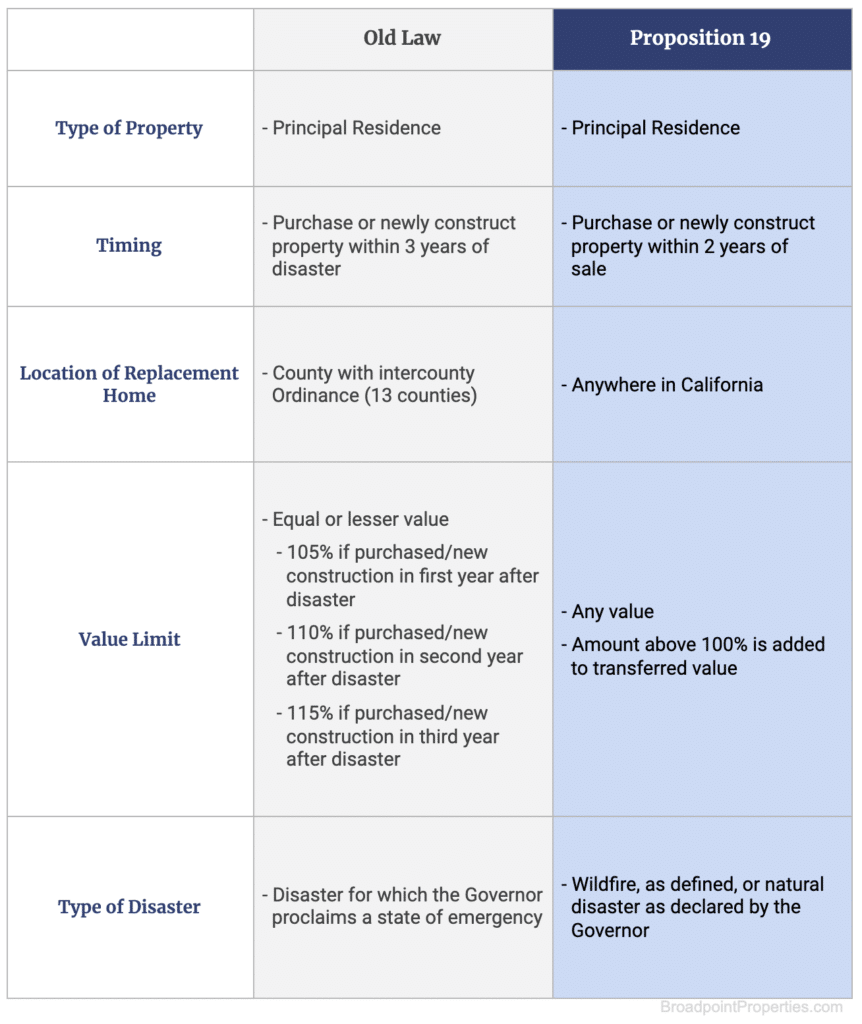
Do you think Prop 19 is good or bad? You can learn more about Prop 19 here. If you want to make a #GreatMove and take advantage of the benefits of Prop 19, feel free to reach out to us.




